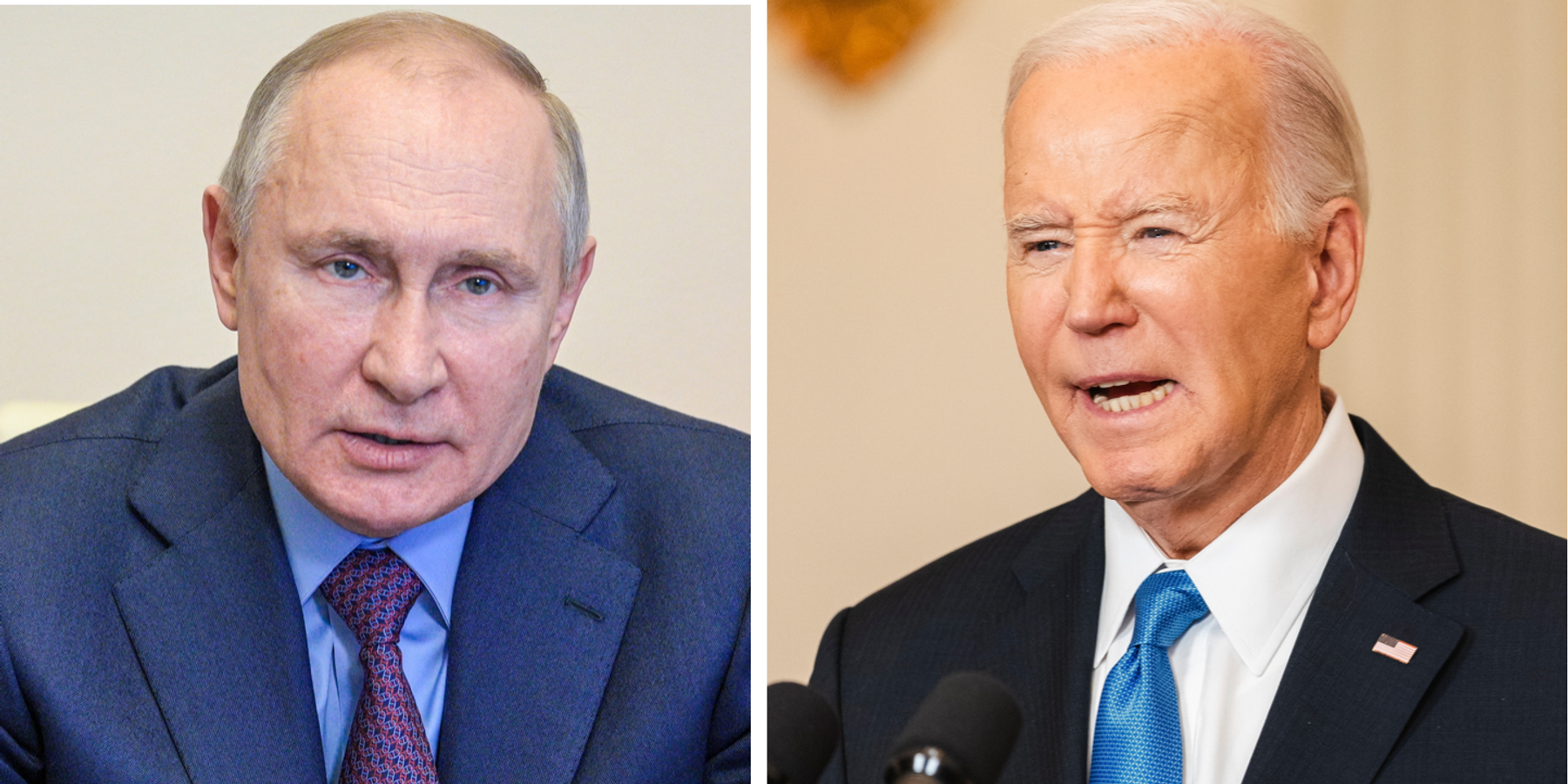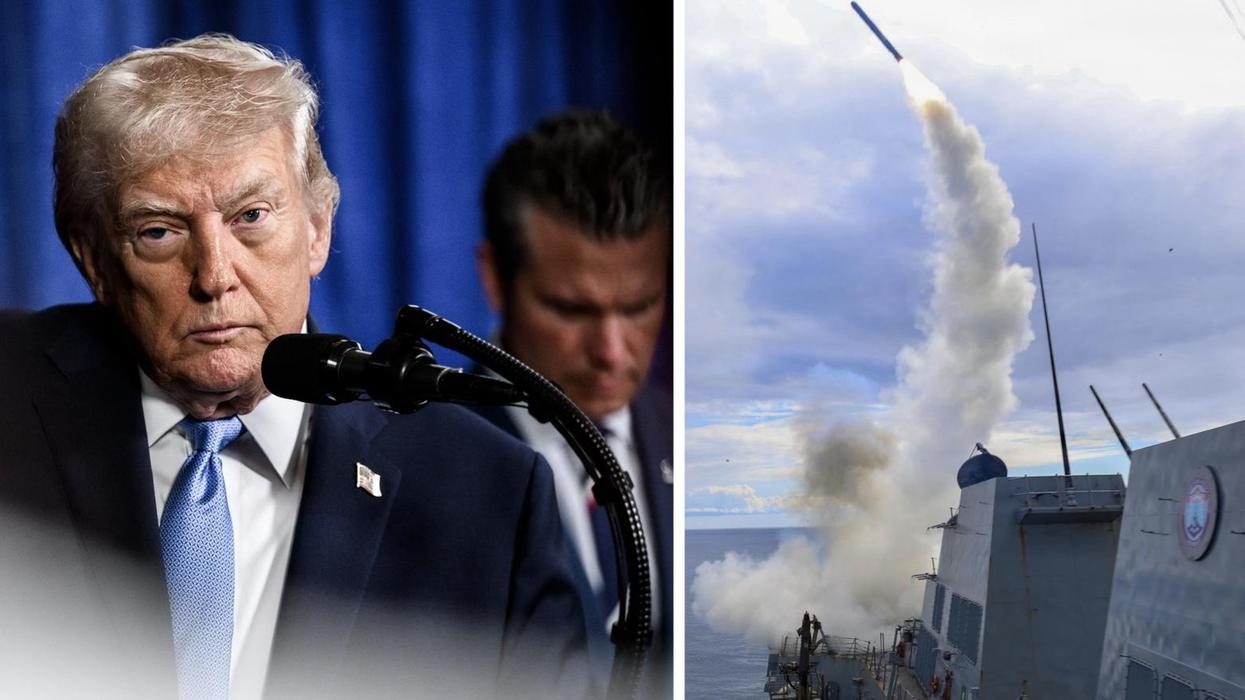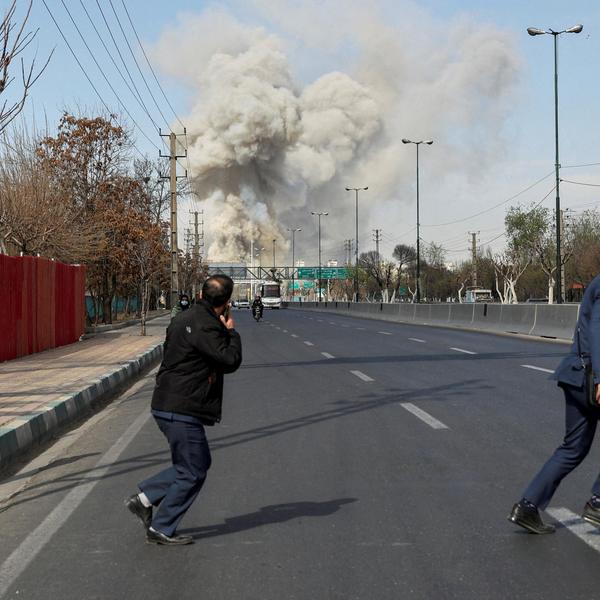There is a dearth of hopeful possibilities coming out of the Ukraine war these days, so it’s important to make the most of them when they do emerge.
Case in point: last week, Reuters published a report based on four sources “who work with or have worked with [Russian President Vladimir] Putin at a senior level in the political and business world” and are “familiar with discussions in Putin's entourage,” who told the outlet Putin was ready to negotiate an end to the war on the current battlefield lines.
Significantly, when asked about the report at a press conference, Putin said to “let them resume,” meaning peace talks.
If true, this is yet another signal coming out of Moscow in recent months that Putin is open to striking a deal to finally end the war, albeit on the condition that Ukraine accept territorial losses. As distasteful as that prospect is, the United States and its partners, including the Ukrainian leadership, should urgently take this opportunity.
For one, we are already living through the folly of ignoring the very real prospects for a negotiated end to this war in 2022. The result has been disastrous for Ukraine.
Though the numbers are a state secret, Ukraine has by now almost certainly suffered hundreds of thousands of casualties. Its economy and infrastructure have been crippled, it is mired in massive amounts of foreign debt, faces more than half a trillion dollars in reconstruction costs, seen its democratic institutions degraded — all while facing a social crisis from its rapidly aged and disabled population.
Worse, Ukraine has started losing territory it gained back in its fall 2022 counteroffensive, as Russia has leveraged its far bigger population and resources to slowly make gains. Western intelligence agencies now reportedly expect the country to suffer “significantly greater territorial losses” by the end of this year.
Meanwhile, the measures taken by the Ukrainian leadership and its NATO partners to maintain the war effort are becoming increasingly morally indefensible. As Kyiv puts its deeply unpopular expansion of conscription into action — and as ordinary Ukrainians flee the country, desert the military, or desperately avoid being snatched by military recruiters and sent to die on the front line — a succession of NATO states, including Poland and even some German officials, have talked about deporting Ukrainian refugees, so they can be forced to fight.
Meanwhile, only 35 percent of those not fighting feel ready to serve, and morale is rock bottom among the country’s increasingly older, unhealthy recruits.
All the while, the war’s risk of catastrophic escalation is creeping back to the high point it reached two years ago, when President Biden warned the world was the closest to “Armageddon” it had been in sixty years. With the United States and Europe looking at the serious prospect of what the Economist recently called a “humbling episode” that would be a “modern Suez moment,” officials have begun publicly floating previously unthinkable steps to prevent a Ukrainian defeat, ones that have the potential to trigger direct NATO-Russia hostilities.
Several NATO member states, including France, have now publicly threatened to send troops into Ukraine. Just yesterday, the Ukrainian military’s top commander officially permitted French instructors to enter Ukrainian training centers, bringing the possibility of Russian strikes killing NATO service members one step closer to reality.
At the same time, other alliance officials, including Secretary General Jens Stoltenberg, are now warming up to the idea of letting Kyiv use its Western arms to strike targets within Russia, something the Kremlin has warned is “playing with fire.” We got a chilling idea of what that might mean last Friday, when Ukrainian forces used drones to destroy an early warning radar site in Russia.
The radar, warned Carnegie Nuclear Policy Co-director James Acton, was a key part of Russia’s nuclear detection and deterrence system that would have “only limited military benefit to Ukraine and exacerbates nuclear risks.”
As Acton pointed out, attacks on this system are explicitly listed as potentially justifying the use of nuclear weapons in Russia’s military doctrine, just as they had been by the Trump administration.
The potential for these and further escalations will only grow in the months to come. As the U.S. election season heats up, the political pressure to avoid the appearance of defeat, humiliation, or loss of prestige — and so, the incentives to escalate in the hope of forestalling one or all three — will only become more intense.
Taking advantage of Putin’s apparent openness to a ceasefire and striking a deal now, however unpleasant, will be better for everyone: for the state of Ukraine, for its people, and for the safety of the entire world. To borrow words that were already once tragically ignored, the Biden administration should now “seize the moment.”
- Diplomacy Watch: Did Boris Johnson help stop a peace deal in Ukraine? ›
- Does Putin want to end the war? We should test him ›
- US ready for nuclear talks with Russia and China ‘without preconditions’: White House ›
- Droning Russia’s nuke radars is the dumbest thing Ukraine can do | Responsible Statecraft ›
















